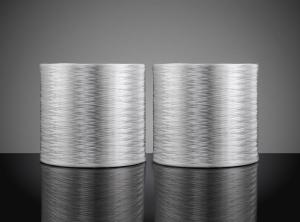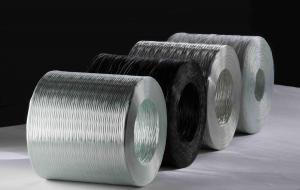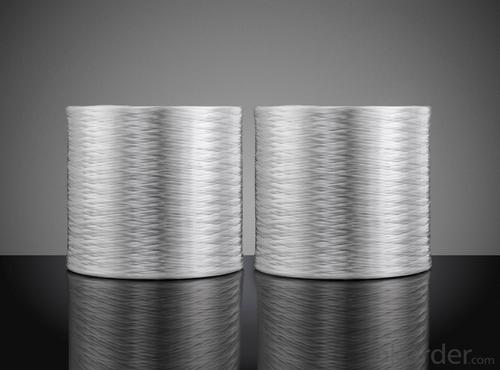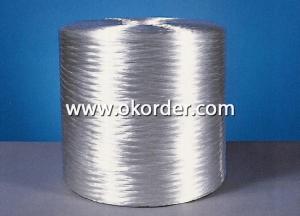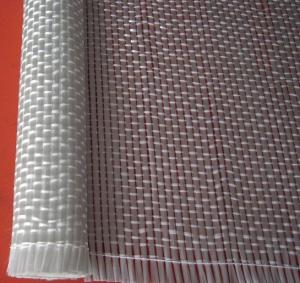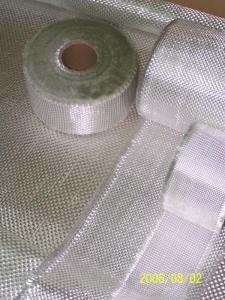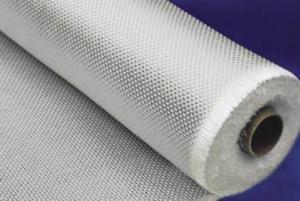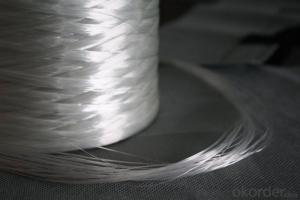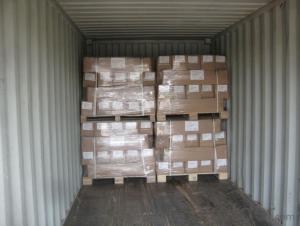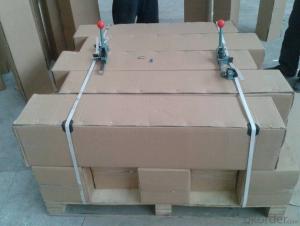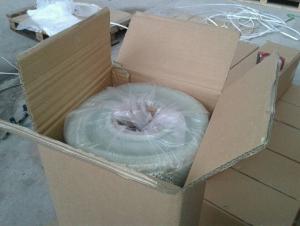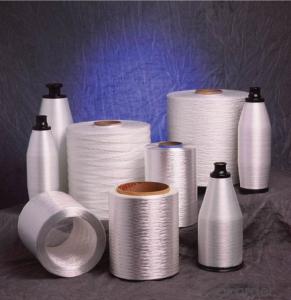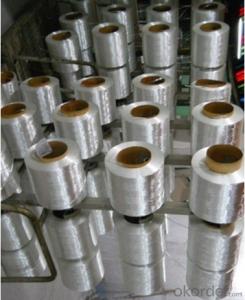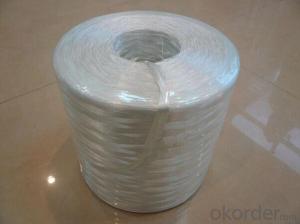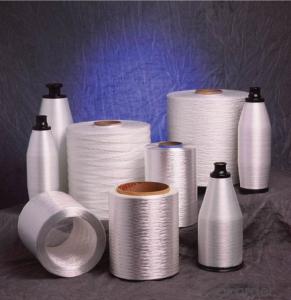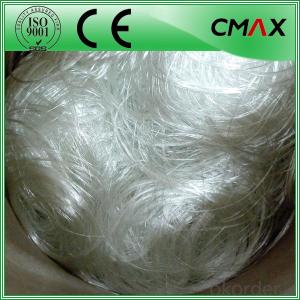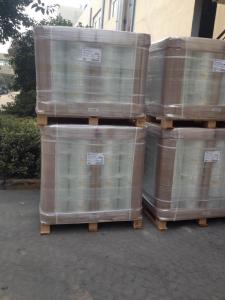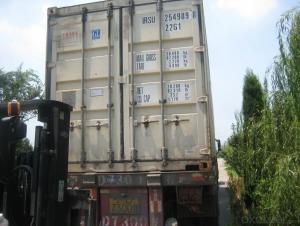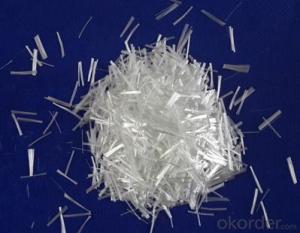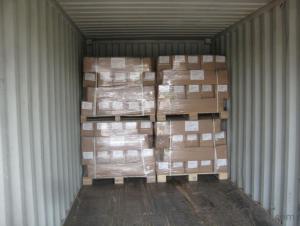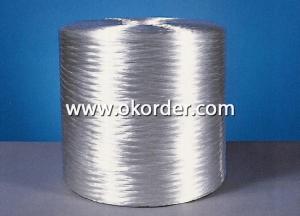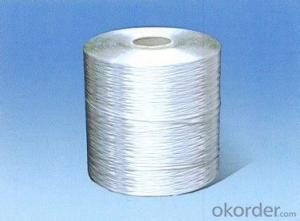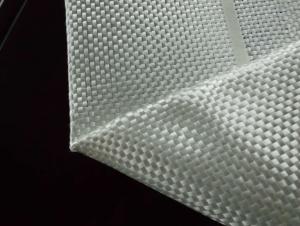386T E Glass Fiber Direct Roving for Filament,pultrusion and weaving applications
- Loading Port:
- Shanghai
- Payment Terms:
- TT or LC
- Min Order Qty:
- 1000 kg
- Supply Capability:
- 10000000 kg/month
OKorder Service Pledge
OKorder Financial Service
You Might Also Like
Product Description:
386T Direct Roving is coated with a silane-based sizing compatible with unsaturated polyester, vinyl ester and epoxy resins and designed for filament winding, pultrusion and weaving applications.
386T is suitable for use in pipes, pressure vessels, gratings, profiles, boats, and chemical storage tanks.
Product Features:
·Good process performance and low fuzz
·Multi-resin compatibility
·Fast and complete wet-out
·Good mechanical properties of parts
·Excellent chemical corrosion resistance
Technical Parameters:
Item | Linear density variation | Moisture content | Sizing content | Breakage strength |
Unit | % | % | % | N/tex |
Test menthod | ISO 1889 | ISO 3344 | ISO 1887 | ISO 3341 |
Standard range |
± 5 |
≤ 0.10 |
0.60 ± 0.10 | ≥ 0.40 ( ≤ 2400 tex) ≥ 0.35 (2401~4800 tex) ≥ 0.30 ( >4800 tex) |
Instructions:
·The product is best used within 12 months after production, and should be kept in the original package before use.
·When using the product, please control the tension properly and ensure the tension uniformity.
·The temperature and humidity of the product should be conditioned to be close or equal to the ambient temperature and humidity before use, and the ambient temperature and humidity should be properly controlled during the use.
·Care should be taken when using the product to prevent it from being scratched or damaged.
Packaging:
Item | unit | Standard | |||
Typical packaging method | / | Packed on pallets. | |||
Typical package height | mm (in) | 260 (10.2) | |||
Package inner diameter | mm (in) | 160 (6.3) | |||
Typical package outer diameter | mm (in) | 280 (11.0) | 310 (12.2) | ||
Typical package weight | kg (lb) | 17 (37.5) | 23 (50.7) | ||
Number of layers | (layer) | 3 | 4 | 3 | 4 |
Number of packages per layer | (pcs) | 16 | 12 | ||
Number of packages per pallet | (pcs) | 48 | 64 | 36 | 48 |
Net weight per pallet | kg (lb) | 816 (1799.0) | 1088 (2398.6) | 828 (1825.4) | 1104 (2433.9) |
Pallet length | mm (in) | 1140 (44.9) | 1270 (50.0) | ||
Pallet width | mm (in) | 1140 (44.9) | 960 (37.8) | ||
Pallet height | mm (in) | 940 (37.0) | 1200 (47.2) | 940 (37.0) | 1200 (47.2) |
Storage:
Unless otherwise specified, the fiberglass products should be stored in a dry,cool and moisture proof area.The best temperature and humidity should be maintained at -10℃~35℃ and ≤80% respectively. To ensure safety and avoid damage to the product, the pallets should be stacked not more than three layers high. When the pallets are stacked on two or three layers, special care should be taken to correctly and smoothly move the
upper pallet.
- Q: What are the main molding processing methods of plastics
- There are many methods of plastic forming. Six main forming methods are listed below: 1 injection molding and injection molding, extrusion molding. 2. extrusion molding, which is the main molding of thermoplastic plastic molding, 3 hollow blow molding, also known as the 4 compression molding also called compression molding. The upper and lower mold installation the template in the press on, the plastic material directly into the cavity, the mold is closed, full of plastic cavity in the heat and pressure, setting after plastic products. 5, injection molding and transfer molding. One of the main forming method is thermosetting plastics. It is feeding room, plastic pellets into mould in the heating, melting plastic under pressure through the pouring system of bottom mold transfer chamber fills the cavity, and then cure it. 6, solid molding molding plastics in melting temperature, in the molding process No obvious flow condition, for two times molding plastic sheet, such as vacuum molding, compression molding and air pressure molding, original for thin-walled parts molding, first used in the manufacture of thick wall parts. 7, other molding calendering, there are many casting plastic molding methods...
- Q: What can fiber concrete do?
- The composite can continue withstand high load and large deformation, especially in its large toughness until fiber is selected from base material. Compared with ordinary concrete, it can be used to limit the expansion of cracks in the concrete base under the action of external forces. The tensile ultimate strength can be increased by 30 ~ 50%. The fiber reinforced concrete mainly uses short fiber which has a certain length to diameter ratio (i.e., the ratio of the length to the diameter of the fiber). In the design and use of fiber concrete, please refer to the current "technical specification for fiber reinforced concrete structure" if the volume content of the fiber is greater than a critical value, when the ingredients are suitable and suitable for high efficiency water reducing agent. The main function of fiber in fiber concrete. The fiber is the acceptance of the main external force. The fiber products (such as glass fiber mesh cloth, fiber reinforced concrete has high tensile strength and ultimate bending strength., cement-based material and fiber to bear when the external base material occurred after cracking, initial bending). But sometimes we often use long fiber (such as glass fiber roving.
- Q: How to make the lining of tank acid-proof and anticorrosion.
- If it is metal can, cleaning, descaling and brushing anticorrosion lacquer will be fine.
- Q: What are the causes and methods of glass fiber surface treatment?
- Transfer process: the incorporation of surface treating agents into resins (mainly for wrapping and moulding).
- Q: Glass fiber thermal insulation belt for glass fiber.
- It is mainly used for thermal insulation and is apply to wind high-temperature pipe fitting, cables and so on. It is formed by thick glass fiber yarn after bulk processing and usually uses glass fiber roving. It is widely used for electric heating wire and heating element.
- Q: Which tensile strength of alkali resistant glass fiber mesh is bigger, the lateral one or longitudinal one?
- The horizontal one.
- Q: how to produce glass?reinforced?plastics grating
- Production technology, there are mainly three konds of glass?reinforced?plastics grating production process: Peciprocating filament winding process, continuous filament winding process and casting process. Reciprocating filament winding process(belongs to fixed-length method): In this process, the leaching glue tank with rotating mandrel reciprocate and the long glass silk with a certain angle works as auxiliary. Auxiliary angel (the winding angle) is controlled by the moving speed of leaching glue tank and the speed ratio of mandrel and translational motion of leaching glue tank is controlled by computerized electric machine. The layer number of twisting is gradually increased to meet the thickeness of design wall. After winding is completed, resin in products should be solidified and then form mandrel from glass reinforced tube. Continuous filament winding process (belongs to continuous method) The process is that pipe pass through a feeding station which is to supply resin presoak roving, chopped glass reinforced fiber, resin sand mixture. then pipe formed in the continuous progress of mandrel. Casting process (belongs to fixed-length method) In this process, chopped glass fiber reinforced materials and sand are put into the steel mould fixed in bearing, then unsaturated resin used as catalyst is added into one side of steel mould to dip reinforced materia. Under the effect of centrifugal force, the resin exchange fiber and filler in the air so as to create a nonporous compact composite material and a smooth, bright and clean pipe surface layer with rich resin. steel tubes start to curing under high temperature. Pipe produced in this way is also called glass reinforced plastic sand pipe. In the world, the number of manufacturers using reciprocating filament winding process to produce tube is more than that of the rest two production technology. One of the reasons is is that the former has a wider range of usage and its applicability is better.
Send your message to us
386T E Glass Fiber Direct Roving for Filament,pultrusion and weaving applications
- Loading Port:
- Shanghai
- Payment Terms:
- TT or LC
- Min Order Qty:
- 1000 kg
- Supply Capability:
- 10000000 kg/month
OKorder Service Pledge
OKorder Financial Service
Similar products
Hot products
Hot Searches
Related keywords
